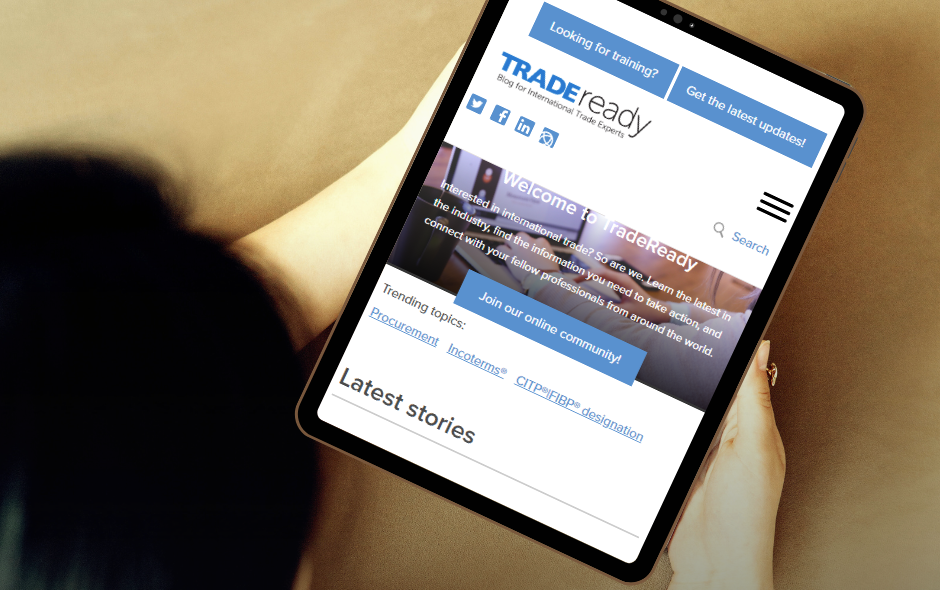 The success or failure of a market entry attempt depends to a large extent on the partners a company works with. The search for the best international business partner possible can be both time consuming and costly. Partnerships can succeed only if the participants are willing to devote sufficient time, energy, resources and skilled people to make them work. This includes the effort needed to find the right partnership in the first place.
The success or failure of a market entry attempt depends to a large extent on the partners a company works with. The search for the best international business partner possible can be both time consuming and costly. Partnerships can succeed only if the participants are willing to devote sufficient time, energy, resources and skilled people to make them work. This includes the effort needed to find the right partnership in the first place.
Effective partnering depends on effective networking. This is especially true for small businesses.
Formal and informal business links are important ways of developing contacts, securing business information, initiating co-operative activities, gaining access to new sources of capital and obtaining technology.
Business associates with experience in the target country are especially valuable, as a company can often hear about a potential international business partner when discussing other matters with a business contact.
Initial exploratory meetings with potential partners often produce much better insight into market dynamics, segments and competitors, which means that early meetings with other market insiders are often an incredibly valuable source of information. Here are five different sources you can explore to find the best partner for your international business.
1. Governments
In most countries, companies can approach the government department responsible for trade for information and resources. Trade departments will offer advice on exporting and other market entry strategies and will have databases of trade, investment and technology counsellors abroad.
European Union: The Enterprise Europe Network (EEN) is the largest network in Europe providing trade expertise and services for companies.
U.S.: The U.S. Department of Commerce provides many services to U.S. companies. Information provided includes listings of trade events, market research information for countries worldwide, a China Business Information service, a Middle East and Asia Business Information service and a fee-based Platinum Key service.
Canada: Global Affairs Canada provides a range of services for Canadian and non-Canadian businesses.
India: The Indian government’s Department of Commerce offers a wide range of trade-promotion services and assistance for Indian companies wishing to trade internationally.
South Africa: The South African Department of Trade and Industry offers an Export Marketing and Investment Assistance (EMIA) program that covers costs of travel to foreign markets, attendance at trade shows and establishment of pavilions at local and international trade fairs.
The foregoing list is far from exhaustive, providing instead a view of the types of assistance and resources available in certain markets. In some countries, including the United States, the United Kingdom and Canada, the national export credit agencies (Export Development Canada, or EDC, is Canada’s agency) possess extensive expertise and resources related to international commerce, from country risk and analysis, to financing and risk mitigation solutions, among others.
Many jurisdictions also provide export or trade-related resources and assistance at the subnational level, even down to municipal or provincial/state jurisdictions that are increasingly engaged in trade-related activity, such as the Saskatchewan Trade & Export Partnership (STEP).
2. Foreign embassies and trade commissioners in foreign markets
Many countries have trade counsellors attached to their diplomatic posts overseas, including embassies, consulates and high commissions. Those same counselors may also be present in key markets in the home country, as is the case in Canada, to assist companies with local support prior to their engagement in international markets.
3. Business associations
Business associations include chambers of commerce, boards of trade, industry associations and bilateral business councils set up to develop trade with specific target countries. All of these associations can provide contacts and business information.
Chambers of commerce and industry associations in target countries are also good sources of information. In many countries, industry associations maintain industry statistics as well as membership lists.
Business advisors: Companies should consider using consultants and specialists, such as lawyers and accountants, to search for potential partners. Although this can add to the expenses of market entry, business advisors can use their experience to set up new networks rapidly and speed up the introduction of contacts.
For smaller companies that are new to international trade, such services can greatly decrease the time involved in establishing an effective partnership. Some venture companies with investments in a group of local firms might seek partnerships with companies that have invested in a complementary group of firms, as a means of helping their clients expand and develop.
Financial institutions: Banks, individual traders (brokers) and trading companies are all useful sources of information about a potential international business partner in a target market. A company’s bank has a vested interest in the company expanding its business successfully, and if a company’s bank has a branch in the target country, that branch will usually provide a broad range of local business information.
Commercial databases: There are a variety of commercial databases that provide business information, including contact information. There are also services that are more specifically geared to partnering. Some of the best places to start looking for commercial databases, especially if you live in a medium-size or large city, are the business section of a library or local business centres. Other organizations to contact for information on commercial databases are local chambers of commerce, boards of trade or university business department libraries.
The World Chambers Network provides many services for international companies. One of the most helpful is the official Chamber Directory. This has 12,000 entries representing 40 million Business members and is a network for establishing new business contacts and obtaining helpful market information. The directory can be browsed for validated business partners, public tenders and trade fairs.
4. Expos and trade shows
Companies can also use trade shows to connect with potential partners as well as determine the market potential for their goods and services. There are many different kinds of trade shows or fairs. World expositions (also known as expos or world fairs) are the most important and impressive. Expos are more cultural fairs than industrial trade shows, but there is always a strong commercial component. Each expo is held in a different city and aims to showcase the best of the hosting nation.
There are two types of expo: registered (previously known as universal) and recognized. Registered expos are the most extravagant of the expos, with pavilions built by the attendees. The next registered expo is to be held in Astana, Kazakhstan in 2017. Recognized expos are smaller in scope, with pavilions provided by the organizers. The last recognized expo was the 2015 international expo held in Milan, Italy.
5. Published studies and books
A variety of research institutions and government agencies conduct economic and market research and publish studies on their results. For example, GAC in Canada publishes a wide range of sector profiles and studies. These studies can be accessed online, sometimes for a fee, or can be ordered from a university library. The business section of a good bookstore contains books focused on specific markets, and often include sources of business information.






Very unique experience, looking forward to meeting experienced . educative partners